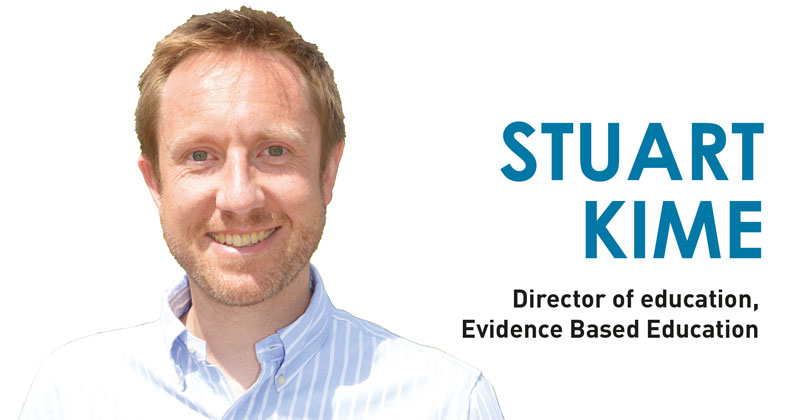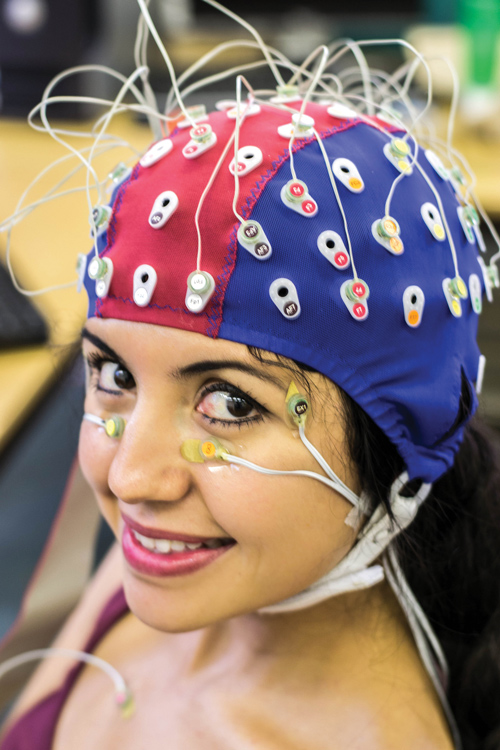Having scoured the international academic journals for the best research applicable to schools in England, Stuart Kime shares his top five treasures
Making decisions means engaging with information, either consciously or not. As I set about finding the shining jewels of rigour in methodological research and substantive brilliance in 2017, I couldn’t help but think of the mis- and disinformation currently buzzing about our daily lives, and how the importance of high-quality research evidence grows with each poorly phrased tweet and propagandist blog post. We need good information in our schools now more than ever.
So what caught my eye in 2017?
Draining the swamp
The Michigan School Program Information Project, Z Neal and JW Neal
Who do you trust to answer an important question? And to whom does that person turn to answer their question? What’s the provenance of the advice you’re given?
In amongst the cloying swamp of competing school improvement priorities and a host of other bit-champing needs, school leaders face a challenge: how do they identify robust programmes which respond to students’ needs, and how do they evaluate the effectiveness of each?

This is where my first pick, the Michigan School Program Information Project, comes in.
MiSPI as it is known is not a covert auto-surveillance system, so don’t worry. Rather, it is a ground-breaking social network analysis project which seeks to bridge the gap between research and practice. It focuses on understanding the ways in which school leaders find and use information to make decisions about interventions and programs to use in their local contexts.
It’s a US-based project, but watch this space. I’m hopeful that we will be able to bring it to the UK soon and trial it here.
A paper entitled ‘What makes research useful for public school educators?’ and written by the MiSPI coordinators is also available here.
Does schooling contribute to learning?
‘The contribution of schooling to learning gains of pupils in years 1 to 6’, H Luyten et al
It seems like a silly question to ask, but let’s do it: is going to school better than not going to school?
To answer the question, Hans Luyten, Christine Merrell and Peter Tymms brought us the gem that is ‘The contribution of schooling to learning gains of pupils in years 1 to 6’, a paper which indicates that schooling – thankfully – has a positive effect on learning (accounting for about 40 per cent of total learning gains). Interestingly, the authors also show that, as children get older, the effect of school decreases.

Hans told me that he was prompted to write the paper because “the bulk of studies on educational effectiveness focuses on differences between school and teachers; our paper addresses what the educational sector in general contributes to the cognitive development of children”.
This is a paper that goes where value-added data cannot go, and that’s why it made this year’s list.
In an era of fake news, research which seeks to understand how young people judge the accuracy of truth claims related to current affairs is prescient, to say the least. In February this year, Joseph Kahne from the University of California, Riverside and Benjamin Bowyer of Santa Clara University emerged with ‘Educating for democracy in a partisan age’.
Kahne and Bowyer found that young people’s accuracy judgements depended, in part, on the alignment of the new truth claim with their prior viewpoints (a form of bias known as “the anchoring effect”). Now there’s an argument for robust education, if ever there was one.
Interestingly, the authors also observed, perhaps somewhat counter-intuitively, that simply knowing more about politics doesn’t improve accuracy of judgements, but that media literacy education did. For me, this is the kind of finding that sets off my thinking. What kind of media literacy? What would it look like? How could we trial it? It’s timely and thought-provoking, so it makes the cut.
Is education neuroscience the next big thing?
‘Online EEG-based workload adaptation of an arithmetic learning environment’, C Walter et al
Neuroscientific research was still all the rage in 2017, the next big thing in education and, while I’m optimistic for what it can offer, I’d challenge the use of the words “next” and “big”. I concede that it’s probably a thing, but let’s not go changing lesson plans just yet.

As the thing grew this year, though, Carina Walter and her colleagues in Germany used EEG (think of the cap with wires coming out all over it) to study the effects of a computer program which adapts learning material online in an attempt to improve students’ arithmetic outcomes. With a small sample, they found that they could measure cognitive workload unobtrusively. I’ve tried doing EEG-based experiments myself and can concur that you get over the cap’s presence pretty quickly, and use it to adapt the content delivered to students.
None of this is going to change what happens in classrooms tomorrow (imagine a class of 30 children each wearing a
28-lead EEG), but it will help us understand more about cognitive load, and that, I am convinced, will be an important element of how we design teaching and learning activities and experiences in years to come.
Can schools reduce bullying?
‘Can schools reduce bullying? The relationship between school characteristics and the prevalence of bullying behaviours’, D Muijs
Why is the relationship between schools’ policies and bullying not a more studied area? Bullying has been, is and will continue to be an insidious problem until we understand more about it and address it in an evidence-informed manner.
Daniel Muijs’ study began with the hypothesis that school size, policies and processes (such as quality of teaching) are related in some way to the prevalence of bullying. By surveying 1,411 year 6 pupils at 35 primary schools, Muijs found a substantial effect of both the school as a whole, and the individual classroom on the prevalence of bullying, but also found that these were mitigated by effective school policies.
I chose to include this study because it shines a light on the importance of school-level policy and practice decisions pertaining to bullying. In a school system that has become increasingly obsessed with a very narrow range of valued outcomes, acknowledging other factors in the life-course development of young people – especially those related to mental health – is critical.
Stuart Kime is a director at Evidence-Based Education, an organisation which trains teachers to be assessment leads and research leads in order to improve school decision-making and student outcomes. Stuart is the developer of three IEE/EEF research schools in East Anglia.







Your thoughts